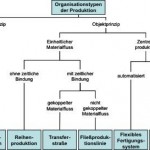Die Telekom macht Schluss mit dem Jugendwahn. Personalvorstand Marion Schick erklärt, wie sie die alternde Belegschaft fit macht, welche neuen Chancen Führungskräfte haben und warum Weiterbildung für Altkräfte so wichtig ist. Frau Schick, der Altersdurchschnitt Ihrer Belegschaft in Deutschland liegt seit Jahren bei 44 Jahren. Sollte Sie das nicht nervös machen? Nein. Auch ein Altersdurchschnitt […]
Author Archives: Leadion
Hat die E-Mail-Flut bald ein Ende?
Belasten E-Mails mehr, als sie helfen? Können wir zukünftig ohne E-Mails leben? Immer mehr Unternehmen beschäftigen sich mit dem Thema.
Grundlagen der Produktion
Teaser
4 Seiten einer Nachricht im interkulturellen Dialog
Hilft das 4 Ohren Modell von Schulz von Thun auch im Umgang mit anderen Kulturen?
delegation
Preparatory questions for staff with management responsibility Eight W-rules for delegation: 1. What needs to be done (content)? What are the individual tasks to be achieved? What is the desired result? What are acceptable differences from the desired result? What difficulties can be expected? […]
goal formulation – exercise
Developed by Ulrich Grannemann
advising, supporting and developing staff
A major task for any manager is the support of their staff. One thing which has an effect here is professional development since staff members have tasks which they must work on appropriate to their knowledge and skills and which at the same time constantly enable them to learn new things: "Job […]
goals, functions, indicators and types
“Goals describe aspired states in the future.” Functions and purposes Leadership goals intend to create as much agreement as possible on the things to be achieved in the future. 1. Goals therefore have a communicatory function (the supervisor and the co-worker have the same pictures and ideas in mind about future results […]
motivation as an incentive formula
Motivation = Value x Probability Motivation for an action as an incentive to invest time, commitment, money or other resources Subjective value: How important is something to me/the member of staff? Subjective evaluation of the probability that the value will be satisfied by the action. Related terms: Motives, drivers, criteria Subjective probability […]
motivation
1. The term "motivation" The word "motivation" comes from the Latin "motivus", meaning to trigger movement. Motivation refers to internal processes (driving forces, needs, attitudes, interests, will) which cause a person to display certain behaviours more often, for longer, more intensively or in a more targeted way (according to Fröhlich & Drever, 1983). Human […]




